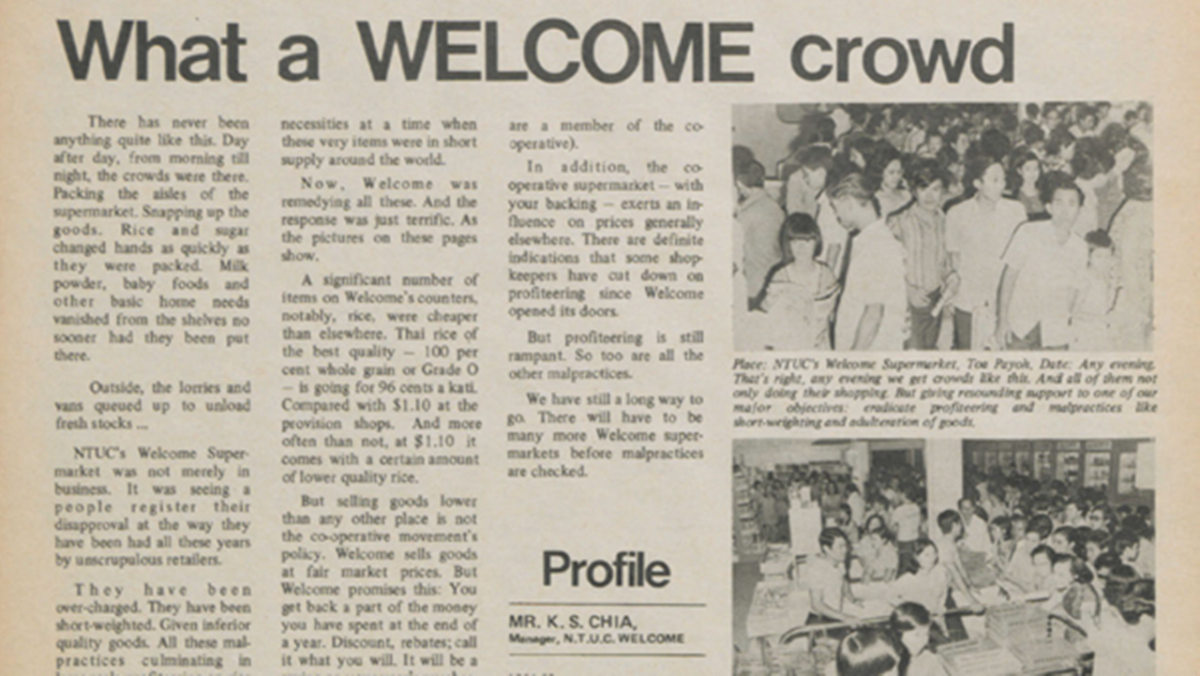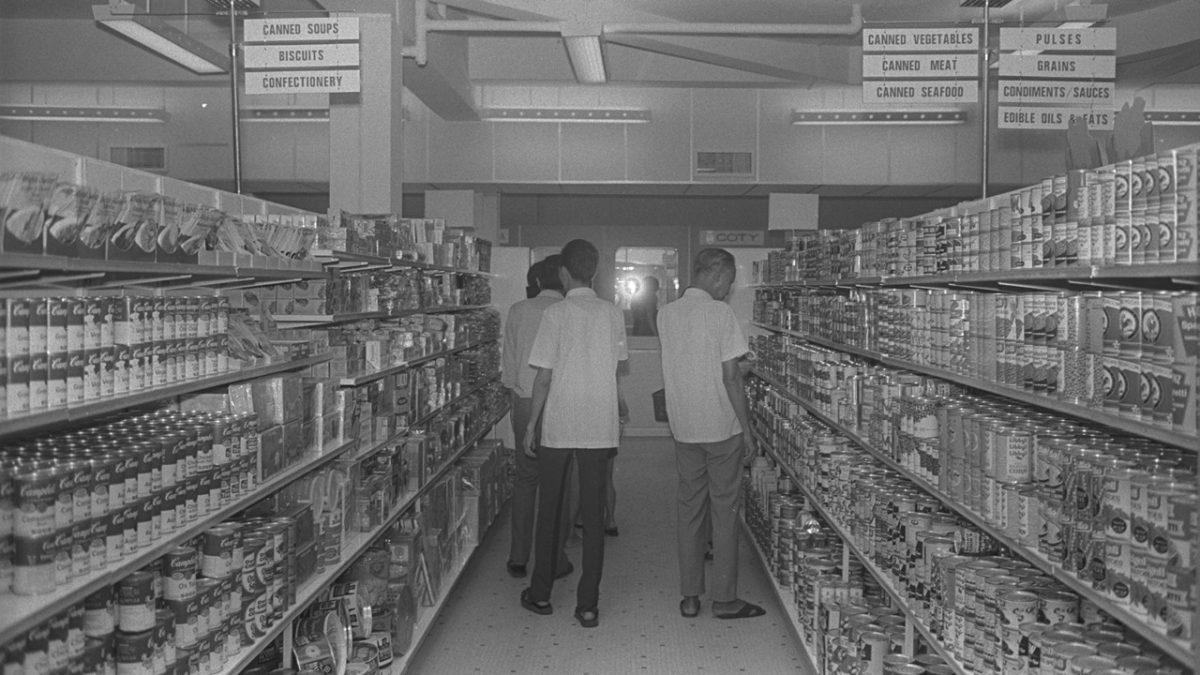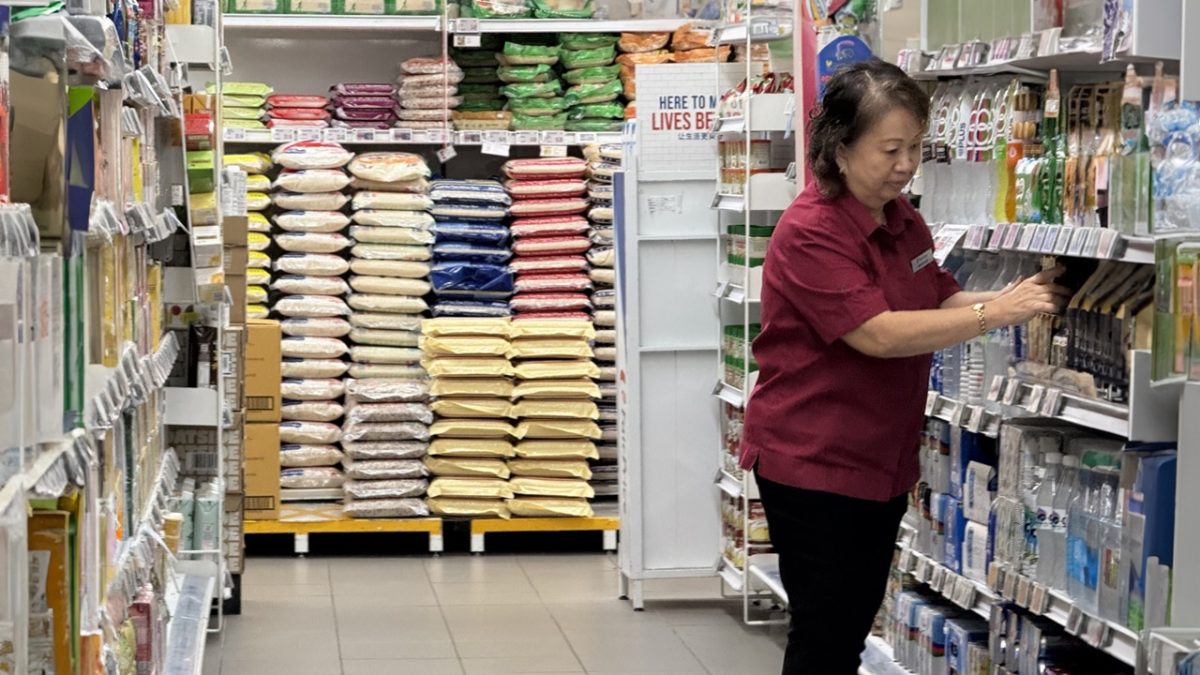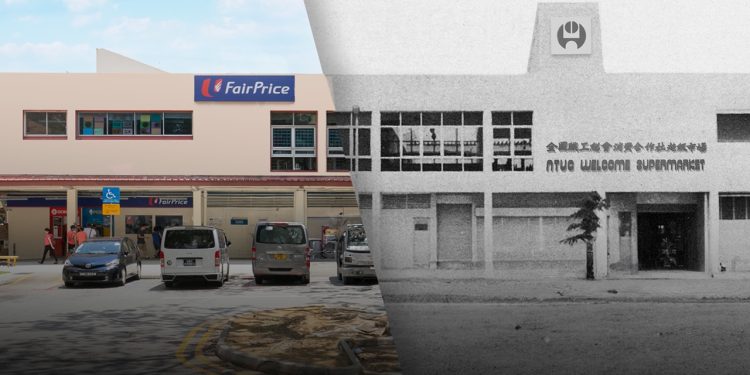Merchants in 1970s Singapore wielded tremendous power over daily life.
When blackouts struck, candle prices would soar. Rice, bread, and other necessities were equally at their mercy, with prices raised at will.
The ordinary consumer had no choice but to pay up.
This backdrop set the stage for then-Prime Minister Lee Kuan Yew’s pivotal statement in a 1971 speech: “If shops are upping prices unreasonably, people must have an alternative to buy from.”
He proposed a solution to establish cooperative supermarkets that would keep retail prices in check.
The National Trades Union Congress (NTUC) embraced this challenge with determination.
Union members rallied to raise funds for a new type of supermarket – one that would keep prices stable and affordable, while sharing profits with consumers through dividends and rebates.
In July 1973, NTUC Welcome opened its doors in a quiet corner of Toa Payoh.

Birth Amid Crisis
The timing of Welcome’s entry proved crucial.
Singapore was battling record inflation of over 22 per cent. Months later, the global oil crisis hit, sending prices of essential goods spiralling upward.
While profiteers cashed in, Welcome – manned by a crew of 30 staff – stood firm with its affordably priced items.
This new store was like no other in Singapore – fully air-conditioned, operating seven days a week, and most importantly, committed to keeping prices affordable and stable.
Welcome provided an alternative that helped Singaporeans stretch their dollar.

Growing Stronger Together
As Singapore developed in the 1980s, the supermarket evolved too.
In 1983, 10 years after opening, Welcome merged with other union-run stores to form NTUC FairPrice. The new entity gained greater economies of scale to offer even lower prices.
The 1985 recession brought another innovation.
FairPrice introduced housebrand products to cushion the impact of rising retrenchment rates and shrinking disposable incomes. These budget-friendly alternatives were up to 10 per cent cheaper than comparable brands, and consumers quickly embraced them.
The housebrand range has grown to over 2,000 products today, including fresh to frozen food, and toiletries to paper products.
Staying Steady Through Storms
Through many crises, FairPrice has stood as a stabilising force.
When the GST was introduced in 1994, it absorbed the 3 per cent tax for a year. During the 2008 global financial crisis, it launched the “Stretch Your Dollar” programme, which offered special discounts on essential items.
When SARS struck in 2003 and the Pasir Panjang wholesale market closed because of infection, FairPrice kept vegetable supplies steady through its Fresh Food Distribution Centre. With 600 tonnes of produce in storage and more arriving daily, it maintained stable prices despite panic buying.
During COVID-19, FairPrice brought groceries directly to elderly residents through “FairPrice on Wheels”. What started as mobile trucks serving five neighbourhoods grew into a popular service, with air-conditioned vehicles offering over 200 essential items to mature estates where many seniors lived.
Few understand this journey better than FairPrice retail assistant Mary Ong, who joined the company in 1974 at age 16.
After 50 years of service, she considers the FairPrice Toa Payoh outlet her second home.
“You’ll only stay for so long when the company is good. When customers praise me, it makes me happy. The understanding we have between colleagues is deeper than with family members,” she said.

A Mission That Endures
Today’s FairPrice serves over half a million shoppers daily through more than 370 outlets, ranging from supermarkets to convenience stores.
Since 2019, it has given back over $900 million to the community through discounts, rebates, and donations.
Its newest initiative, A Full Plate food donation drive, aims to improve nutrition access for underprivileged communities. FairPrice has pledged to match public donations up to $1 million.
From keeping candle prices in check during blackouts in the 1970s to ensuring stable supplies during the pandemic, FairPrice has been there when Singaporeans needed it most.
More than 50 years after its founding, FairPrice remains true to its name – a store that fights to keep prices of essential goods fair for all.
In a world of rising costs and economic uncertainty, its original promise to help families stretch their dollar has never been more important.

